For those of you who want to know a tutorial on how to set the Yoast SEO plugin Settings which is the most solid and effective way to improve on-page SEO WordPress blogs, then you are in the most appropriate position right now. This tutorial is based on version 3.0 and above of the Yoast plugin and is a recommendation from the very famous blogger, Harsh Agrawal.
The Yoast SEO plugin is a tough competitor to the all in one SEO pack plugin, which can offer webmasters a lot more and more advanced features, making it perfect for blogs or websites that are still very new. Therefore, here I will help you all in providing tutorial information about how to set good and correct Yoast SEO Plugins. Without much ado, let’s get started with this tutorial
Table of Contents
General Setting
How to set Yoast SEO plugin Settings in the General section, only need to pay attention to the 2 tab sections, namely the Features and Webmaster Tools section.
Features Settings
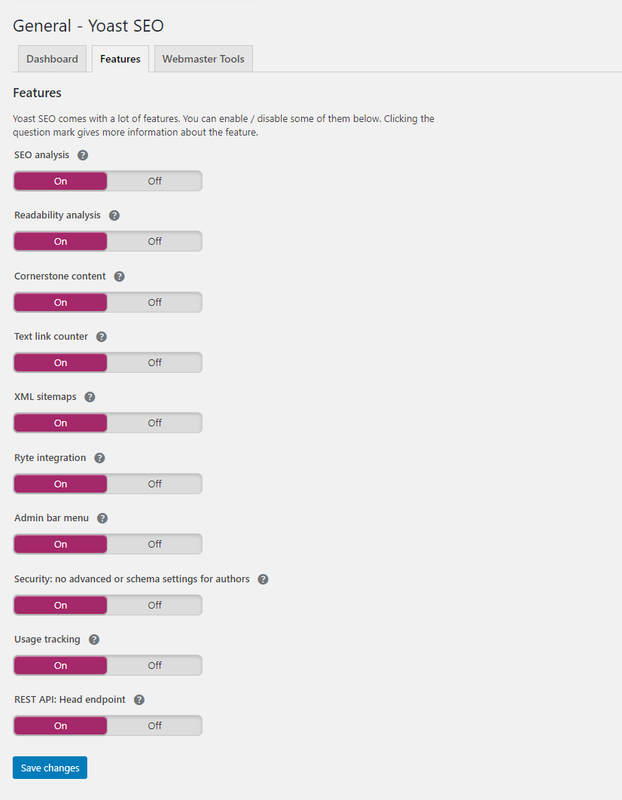
Please enter the name of your website title in the website name section, and enter the website description in the Alternate Name section. For the Company or Person section, please fill in person for those of you who only create a blog that is run privately. However, for those of you who create a website for a company, change it to the company and enter your company name in the company name section.
Webmaster Tools Settings
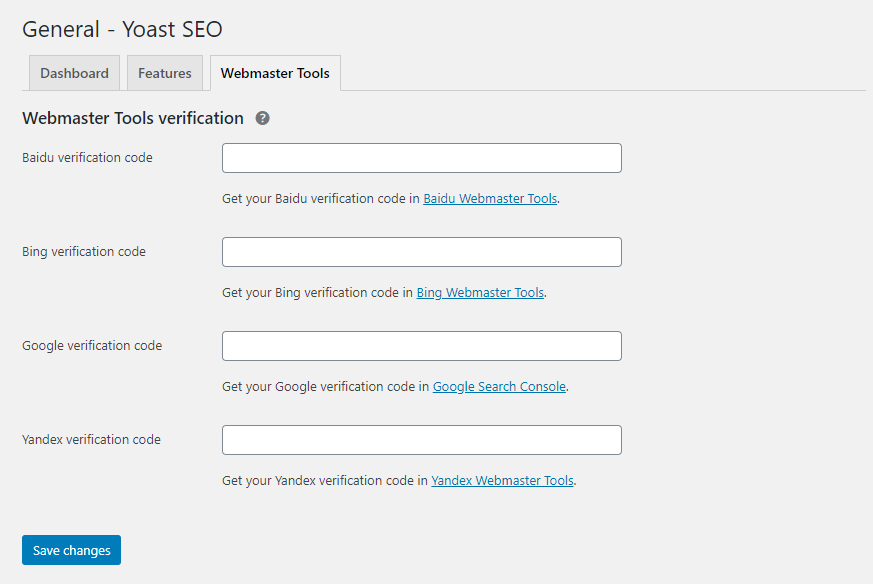
In the webmaster tools section, please enter the verification code you obtained when verifying your website when registering your website on google webmaster tools, bing webmaster tools, and Yandex webmaster tools. But for those of you who only register on Google, please leave the bing and Yandex sections blank.
Title & Meta tag Setting
How to set Yoast SEO plugin Settings in the Title & Meta tag Settings section requires special modification on the Homepage, Post Types, Taxonomies, Archives, and Others section.
Settings on the Homepage
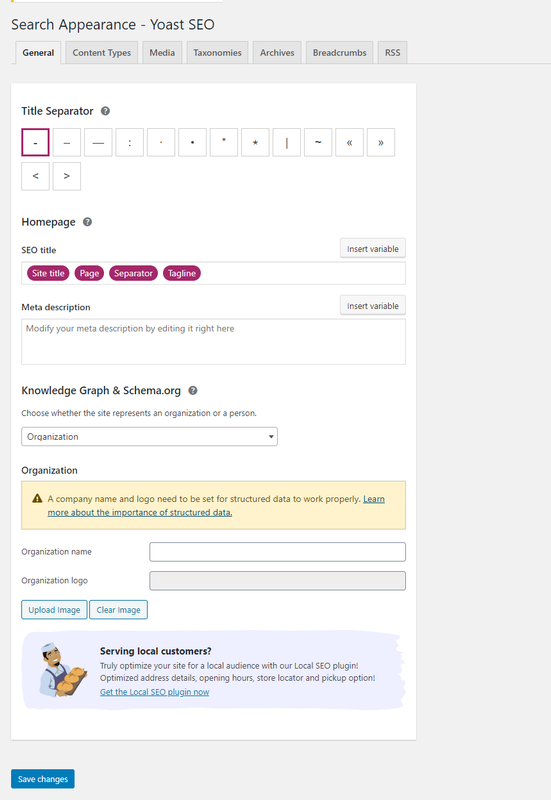
Please write the name/title of your website in the blog title template column and the website description in the meta description template column.
Settings on Post Types
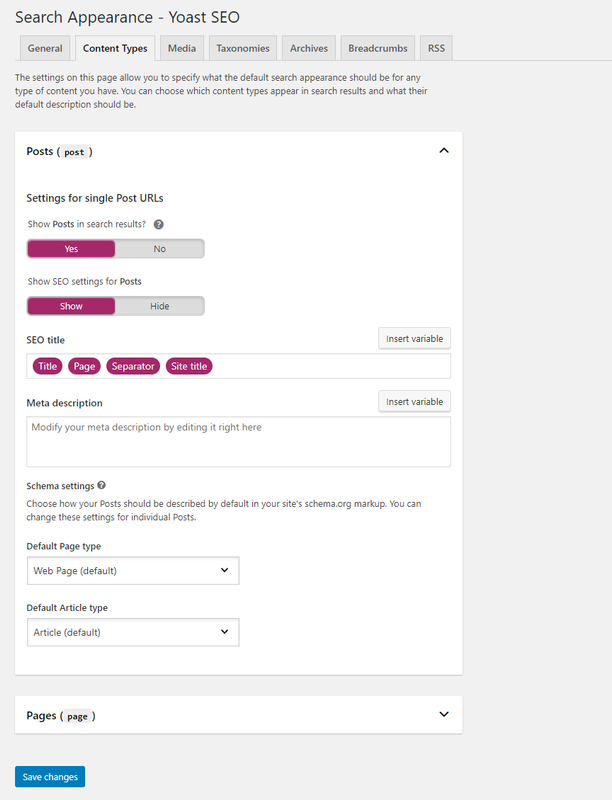
In the post type section, both in the posts and pages setting column, it is recommended that the title template be changed to %% title %%. Besides, the date in snippet preview is recommended to be avoided.
Settings in the Taxonomies Section
In the taxonomies section, you can actually choose which setting you like. However, many well-known bloggers abroad, suggest settings like the image below.
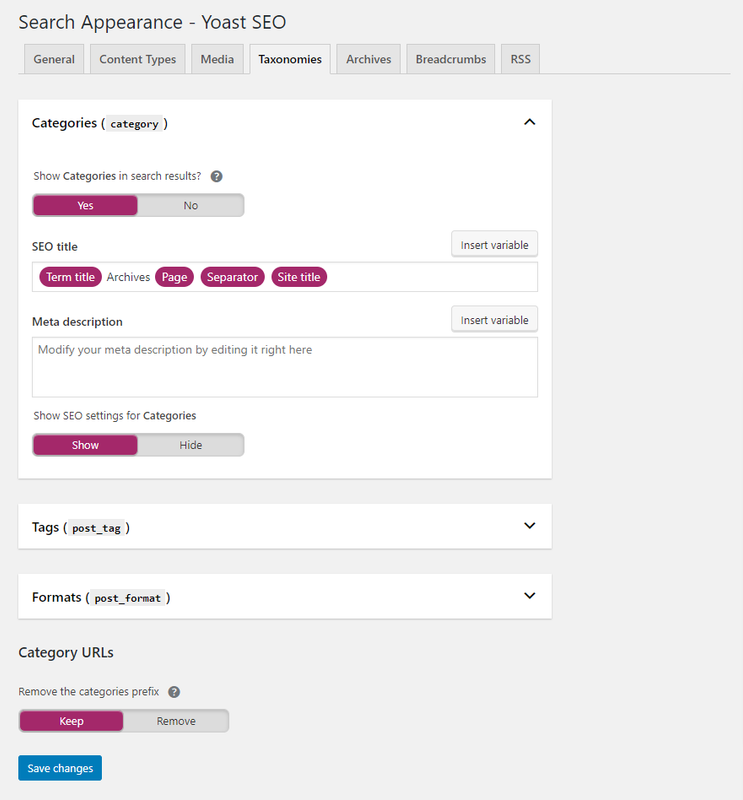
In the Title Template section, just leave the settings by default, and in the Yoast SEO Metabox section, please change it to hide.
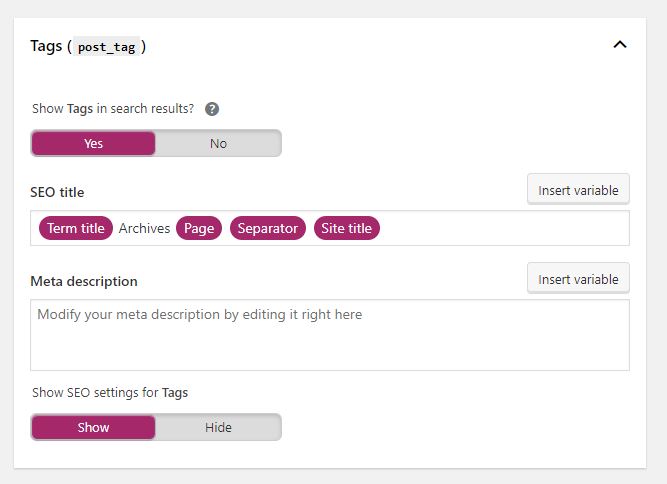
In the Tag section, I personally prefer to noindex the meta robot and I also hide the SEO meta box. If my friend wants to index the meta robot part, that’s fine and not really a problem.
The setting is in the Archives section
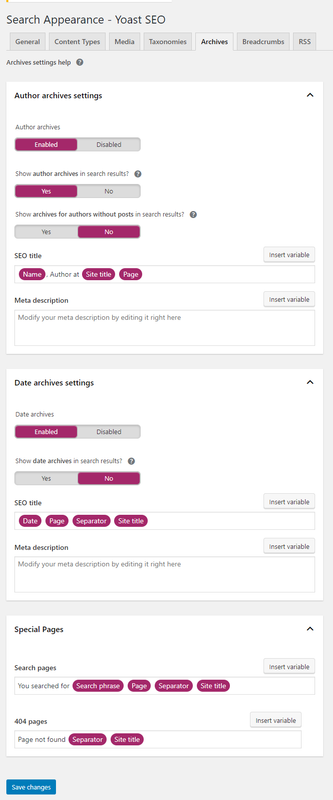
In the archives section, it is highly recommended to noindex the meta robots, both author archives, and date-based archives. This is done to prevent duplicate content because the author archive display may resemble the display of the homepage so that the search engine bots will think of it as duplicate content.
Others setting at Title & Meta tag
Others are a special part of setting up the sitewide meta tag that will be used. For the subpage of the archives column, it is recommended to no-index, while the meta tag keyword column can be disabled or enabled. However, at this time, Google has not considered the use of metatag keywords as a factor of SERP on its search engine. So in my opinion there is no point in enabling meta keyword tags
Yoast Social Media Settings
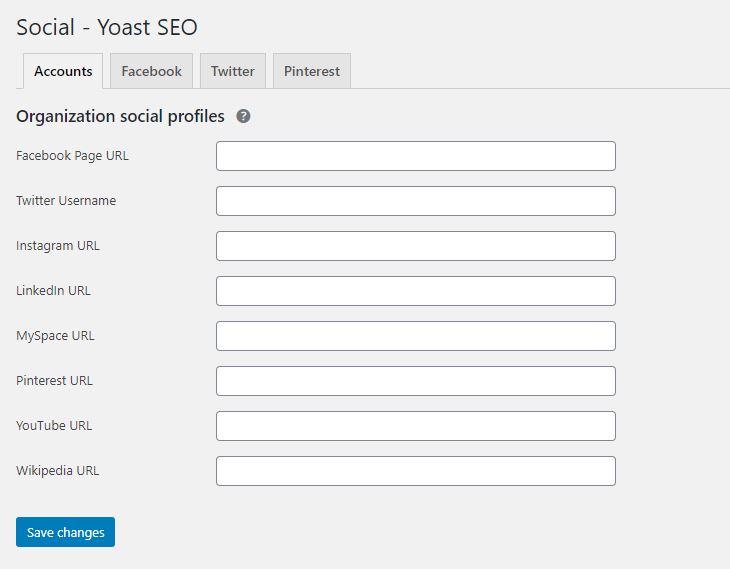
Facebook Settings
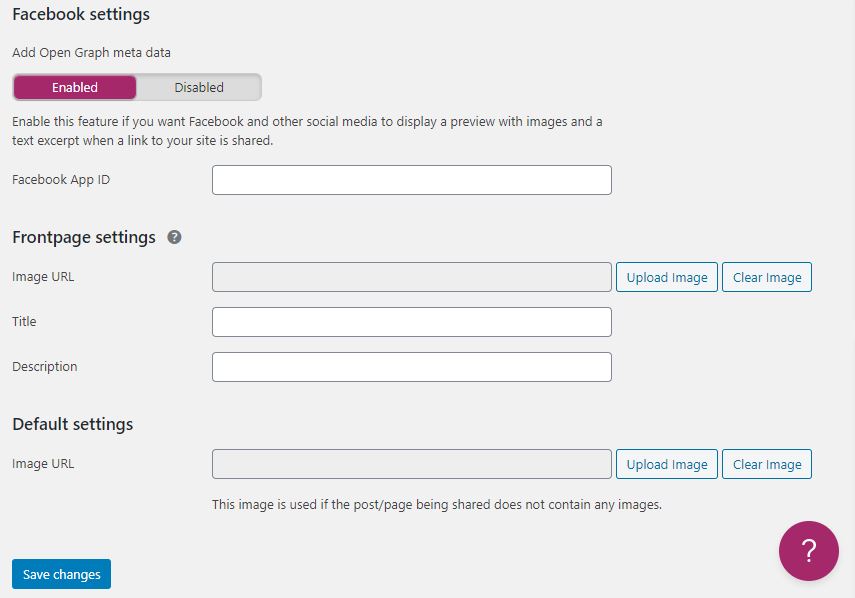
Twitter Settings
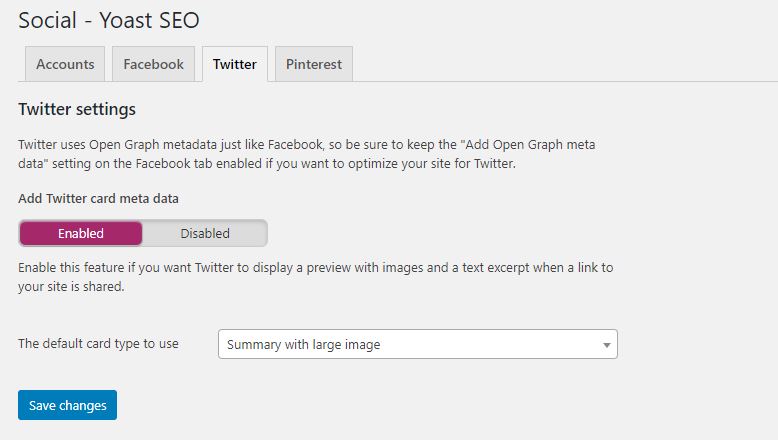
Pinterest Settings
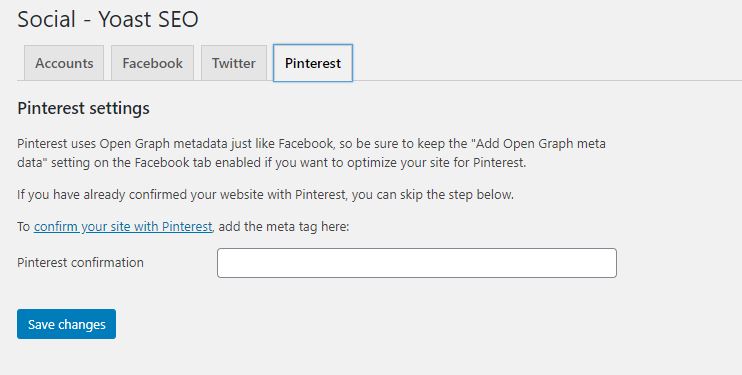
How to set Yoast SEO plugin Settings in the Social media section is very easy, you just need to enter the official social media link that will present your website/blog. This section serves to tell search engines which social media is directly related to your website. No need to manage all social media, just a few social media that your website has.
Sitemap Setting & Advance Setting
In the Sitemap Settings section, there are no columns and sections that need to be changed. All options are recommended to remain at the default settings. While in the advanced section, we only need to focus on two sub-tabs, namely Bread Crumb and Permalink.
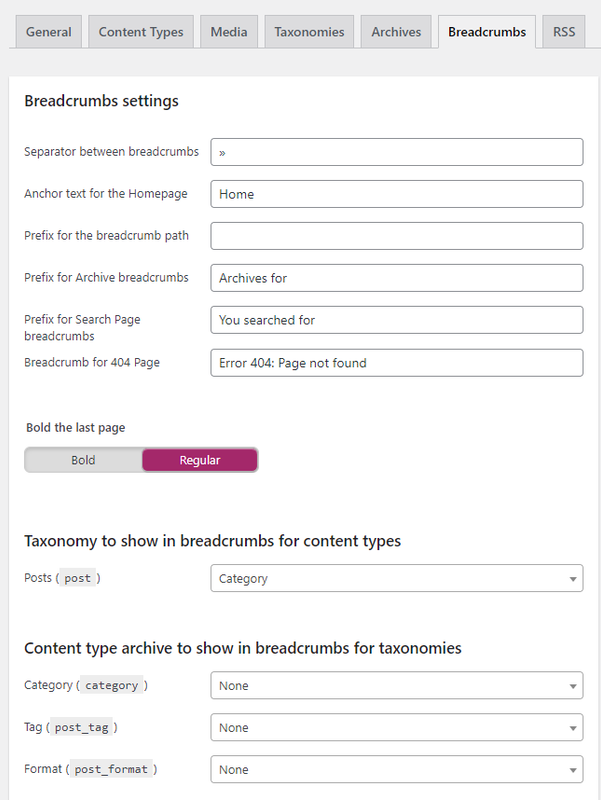
breadcrumb is a navigation arrow that will show you where the readers are currently. It is highly recommended to get the Breadcrumbs feature. Because this feature is not only useful for a good navigator for readers but also very good at building your blog’s internal links later.
In the permalink section, we need to redirect the attachment URL to the parent post URL. So that every image and file attached in the post can be redirected directly to the URL of the image/file origin so that readers can enlarge the image that we attach to the post clearly. Also, don’t forget to remove stop words from slugs so that our permalinks become more SEO Friendly.
For More about permalink setting please refer to our WordPress on-page SEO article
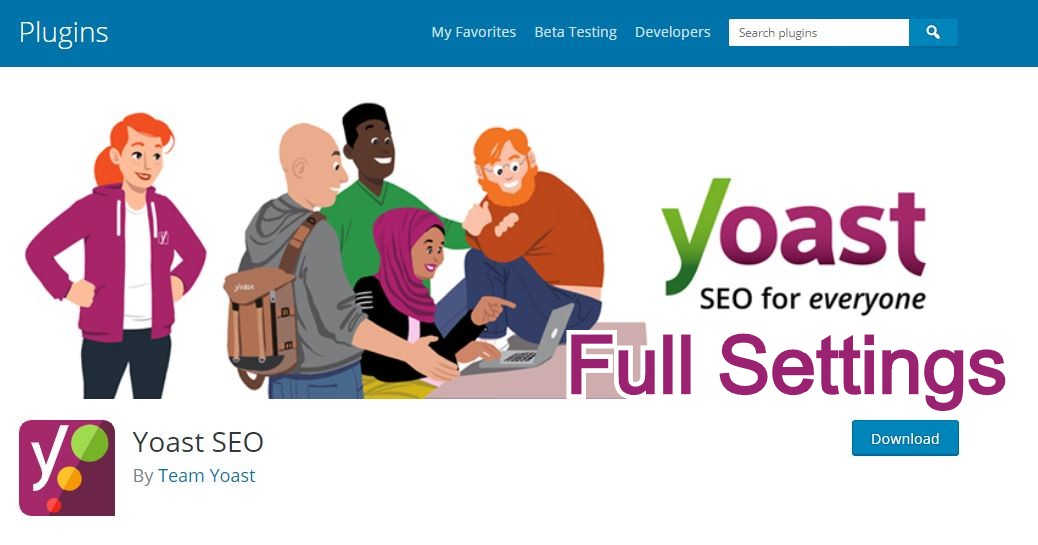
1 thought on “How to set good & correct Yoast SEO plugin Settings”